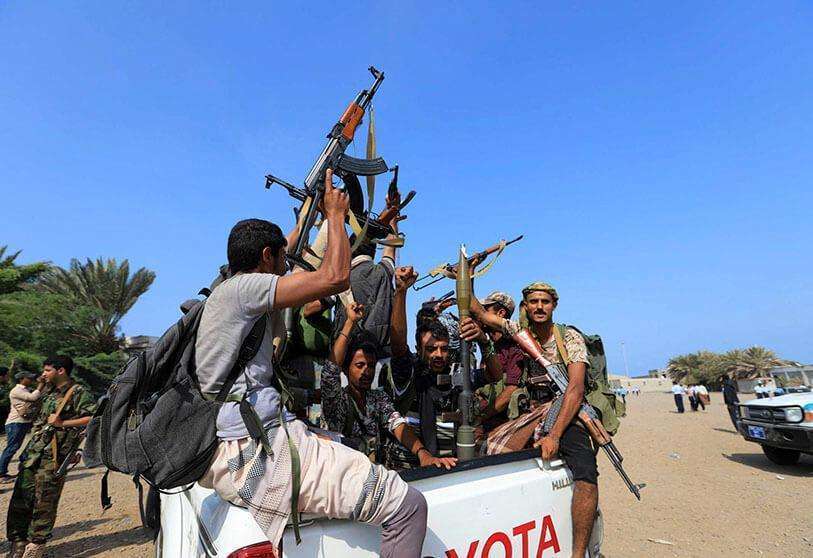Controversy over Lebanese information minister's remarks on Yemen

On 10 September, Lebanon's new head of government, Najib Mikati, appointed a popular television presenter as Minister of Information to shore up his cabinet. A government that emerged from institutional deadlock was, and is, tasked with getting Lebanon out of a quagmire that is approaching collapse. The chosen one was George Kordahi (Keserwan, 1950), a celebrity in the region for being the visible face of the Arab version of 'Who Wants to be a Millionaire'.
A few days before taking office, on 5 August, Kordahi was interviewed on the TV programme 'Barlaman Shaab' where he answered a battery of questions related to the war in Yemen, fought by the Houthis and the Saudi-led coalition forces. However, it was only this week, two months after the broadcast, that the confessions of the current information minister went viral and opened a new chapter of tensions between Beirut and Riyadh.
In the excerpt of the interview that has been circulating on social media, Kordahi vehemently states that the Iranian-backed Houthi militia is "defending itself". "Are they attacking anyone?" the journalist asked. Kordahi justified the Yemeni rebels' actions on the grounds that they are suffering from "foreign aggression", a reference to the role of Saudi Arabia and the United Arab Emirates in the country, which is suffering the world's biggest humanitarian crisis after eight years of conflict.

The remarks on Wednesday sparked a diplomatic crisis in the region. The Saudi Foreign Ministry summoned the Saudi ambassador to Lebanon, Walid Bukhari, to hand him a note of protest. This follows statements by former Lebanese foreign minister Charbel Wehbe, who was forced to resign from his post in May after accusing the Gulf states of causing the rise of Daesh and pointing to them as promoters of the civil war in Syria.
Aware of the magnitude of the statements, the government's top brass, led by Prime Minister Mikati, has come out to disassociate itself from the information minister's remarks. "The recent comments by George Kordahi do not express the government's position on the Yemen issue," he said. "Lebanon is committed to its ties with Arab countries, and my government is ready to have the best relations with Saudi Arabia".
Too late. The damage had already been done. The secretary general of the Gulf Cooperation Council (GCC), Naif al-Hajraf, issued a statement on Wednesday underlining the Lebanese minister's "misunderstanding" and his "superficial reading of events in Yemen". In the letter, al-Hajraf called on Kordahi to stick to the historical facts and to verify the Council's position on the Yemeni issue in the search for a comprehensive solution. Finally, the Secretary-General highlighted the Houthis' "intransigence" against all peace initiatives and their systematic attacks on Saudi Arabia.

The information minister clarified that the statements were made before he was appointed minister, and attributed the dissemination of the video to a campaign against him since he took over the ministry. "To those who are calling for my resignation, I say that I am part of a cohesive cabinet and that I cannot take a decision like this alone", he said during a press conference. But he eventually apologised: "I did not intend in any way to offend the Kingdom of Saudi Arabia or the United Arab Emirates, for which I have the utmost loyalty and love".
This is not the first time the journalist has caused controversy for his political stance. Kordahi named Hezbollah Secretary General Hassan Nasrallah, Syrian dictator Bashar al-Assad and Russian President Vladimir Putin as international political personalities of 2018. Of al-Assad he went on to say that he was a man "made of a different cloth". "As an Arab man, as a Lebanese man, I tell you this: if this man had not resisted, Syria would no longer exist. Lebanon would no longer exist. Jordan and the Gulf would not exist either," he declared at the time. Kordahi has even advocated "a temporary military coup" that would hold power for five years as a way of national salvation for Lebanon.
Growing up in North Beirut, the 70-year-old Maronite Christian began his journalistic career at Télé Liban, the Lebanese public television station, before moving on to Radio Monte Carlo and ending up as a news anchor for MBC, one of the most watched channels in the Arab world. However, his political views clashed with MBC's editorial line, which led to his departure and subsequent move to Al Mayadeen, a Lebanese broadcaster linked to the Hezbollah Shiite militia and the Syrian regime.

His ultimate rise to fame would come on the popular show, and his arrival in government was not without its related jokes. On social media, the Lebanese claimed that Kordahi himself would now be the one to take the million, given the trail of corruption left behind by the Lebanese political class. In any case, his CV was a perfect fit for the role of national representative to the International Monetary Fund (IMF) and other actors in the international community, on which Lebanon depends for its recovery.
Kordahi maintained a political affinity with the Free Patriotic Movement, President Michel Aoun's party, for which he nearly made the lists for the 2013 legislative elections. However, his positions diverged after he publicly criticised President Aoun, stating that he had not been able to "save the country". This separation led him to join the Christian Marada party, which is close to the Party of God.
Now, the Minister of Information is the cause of increased tensions between Lebanon and the Gulf States, especially Saudi Arabia. Historically, Riyadh has appeared on several occasions to shower money on the Lebanese nation and revive its war-torn economy. However, the Saudis have a growing contempt for Lebanon's political class, which they see as having handed the country over to the Tehran-backed and Tehran-founded Shia militia of Hezbollah. This has been the latest outburst. An outburst that could be costly for a state struggling not to fail.










